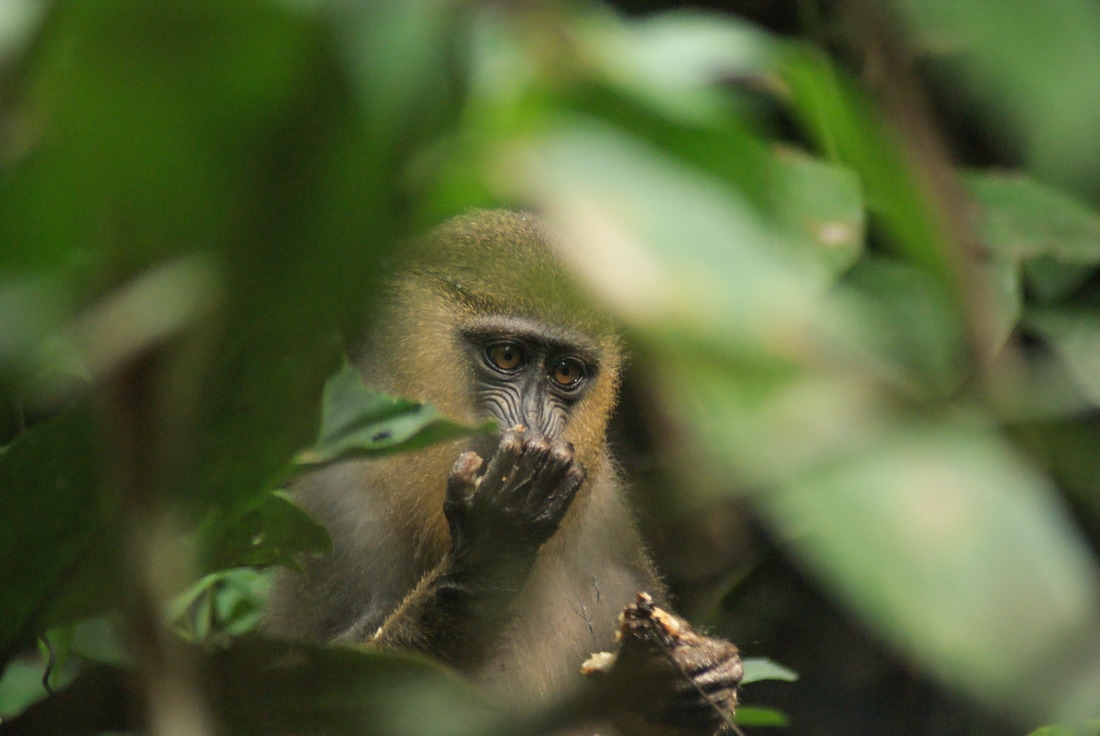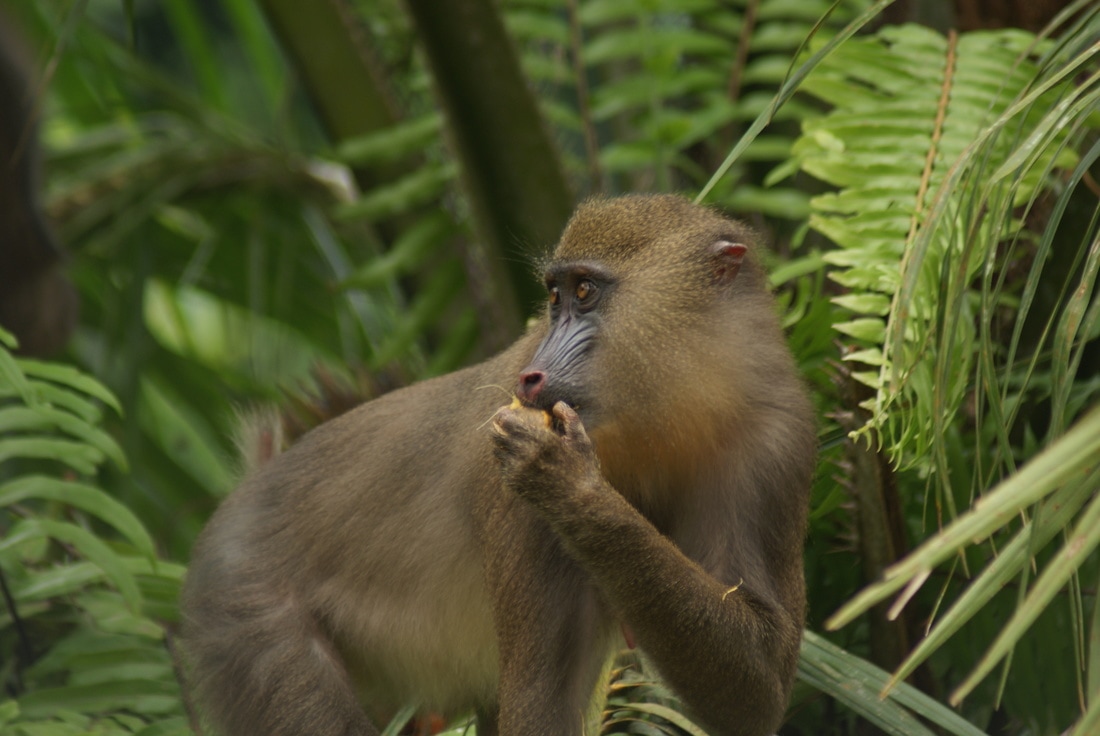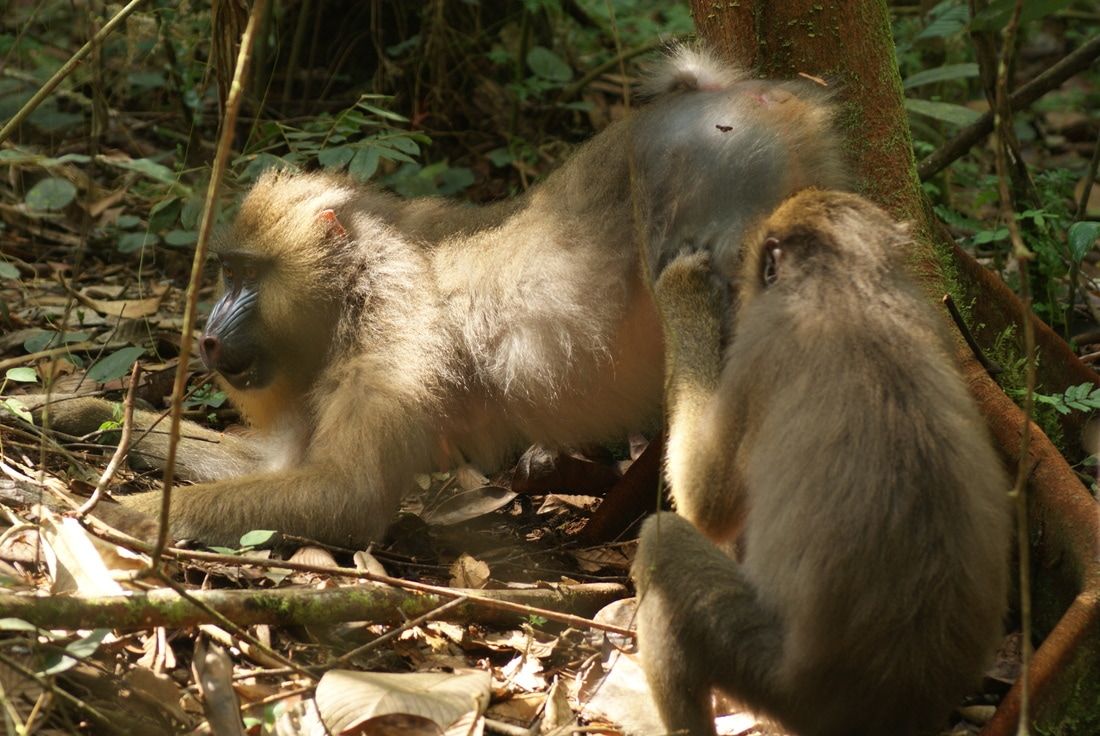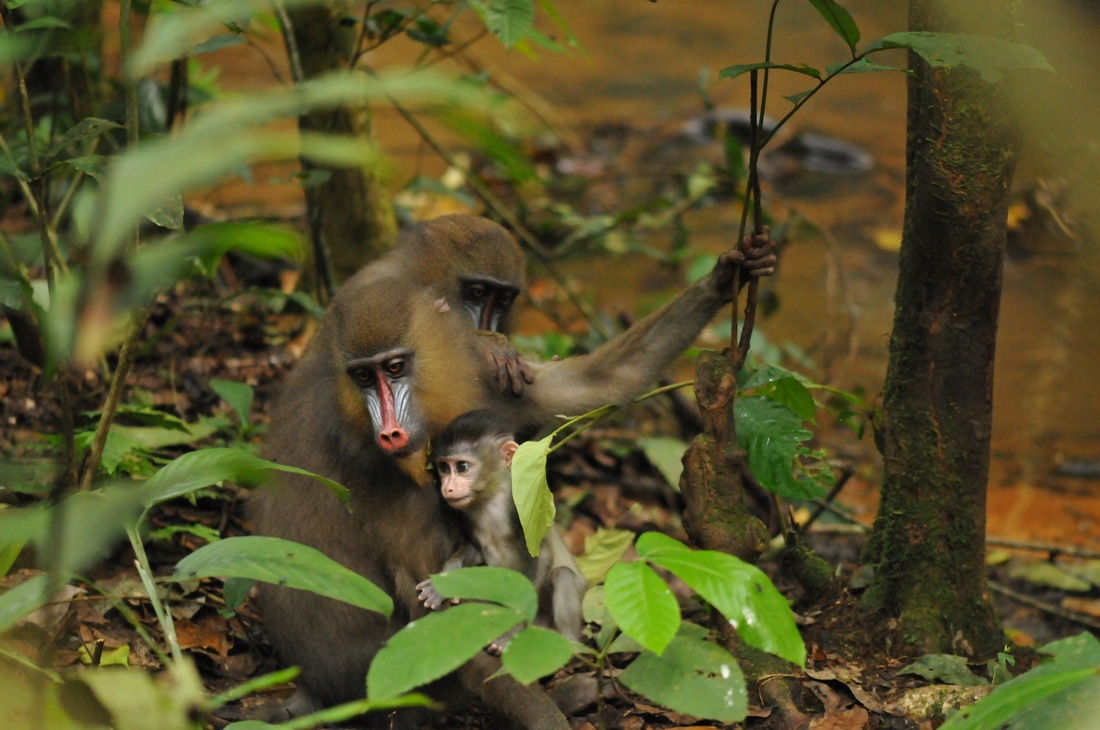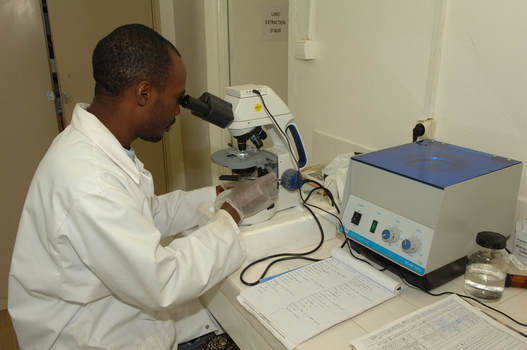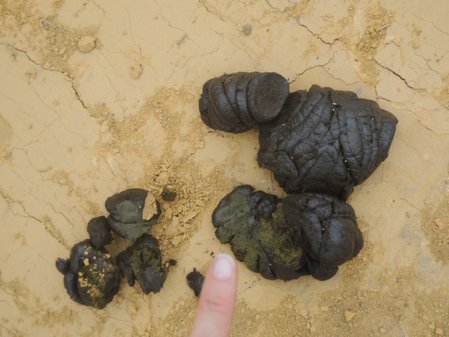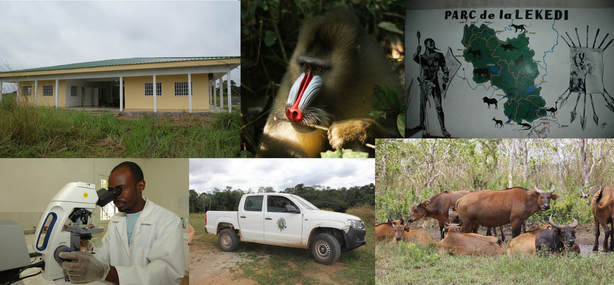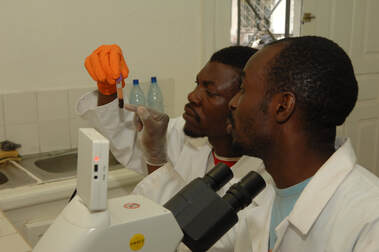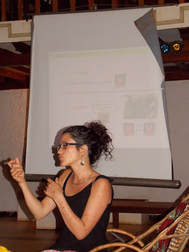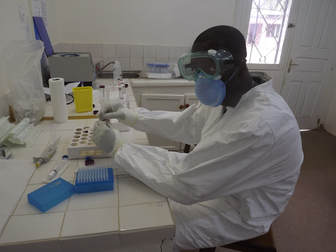SCIENTIFIC PROJECTS
The evolution of sociality is at the core of our research: we are studying the different determinants that may impact social relationships between individuals (why some individuals interact preferentially with others?).
We are particularly interested by the influence of kin relationships on social behavior as well as of parasitism (how mandrills behaviorally avoid parasites?).
If you want to find out more about our research, please visit this website.
We are particularly interested by the influence of kin relationships on social behavior as well as of parasitism (how mandrills behaviorally avoid parasites?).
If you want to find out more about our research, please visit this website.
|
Since 2012, researchers, students and field assistants (people) are gathering invaluable data on mandrills' life and ecology using individually-centered monitoring. In 2023, we individually recognize all group members (>350 individuals) and have collected unique information on the life-history traits in >500 mandrills, including a unique database on pictures collected on these individuals, sometimes from birth to adulthood.
Our approach combines daily field observations of mandrills' behavior and social life and various noninvasive collection of biological samples and pictures. |
We are, for example, daily measuring rates of grooming behavior, an important social tool that may be used by individuals to e.g., pacify or strenghthen social relationships (or remove ectoparasites!).
|
Conservation and societal context
Mandrills is classified as vulnerable by the IUCN red list but the exact number of wild mandrills in Gabon is unknown because of the dense and remote forests where mandrills live. Mandrills currently face two main human threats: the destruction of its habitat and poaching.
The Mandrillus Project represents an important local employer providing a secured income for several extended families. By doing so, we also contribute to raise people awareness about conservational issues through public debates and regular interventions in schools from all team members.
Helping us also means helping to develop these activities.
The Mandrillus Project represents an important local employer providing a secured income for several extended families. By doing so, we also contribute to raise people awareness about conservational issues through public debates and regular interventions in schools from all team members.
Helping us also means helping to develop these activities.
The project works closely with the private park hosting the studied population of mandrills. The Lékédi park is involved in several eco-touristic activities, including following habituated mandrills in the forest. We are actively involved in these eco-touristic activities. We have also set-up a permanent collection of posters and we are regularly giving conferences about our work. Emphasis is also given to schoolchildren, and all members of our team are also regularly participating in scientific meetings in Gabon. Finally, the Mandrillus Project is committed to train Gabonese students from the USTM to become international scientists.
Helping us also means helping to develop these activities.
Helping us also means helping to develop these activities.

